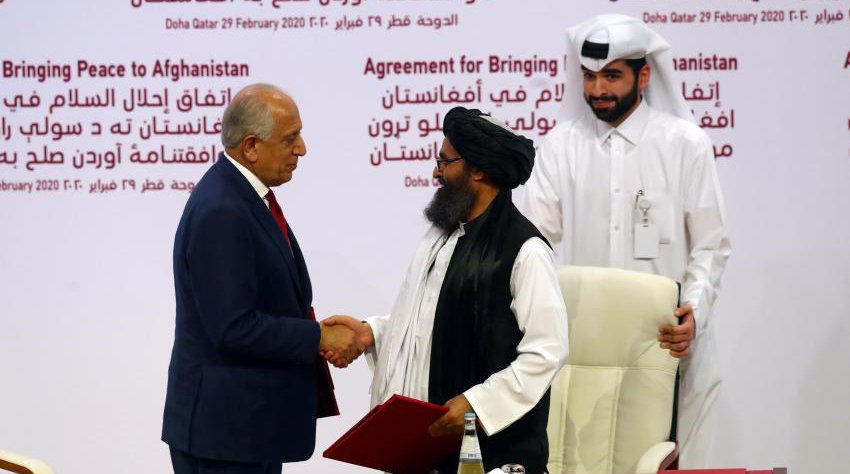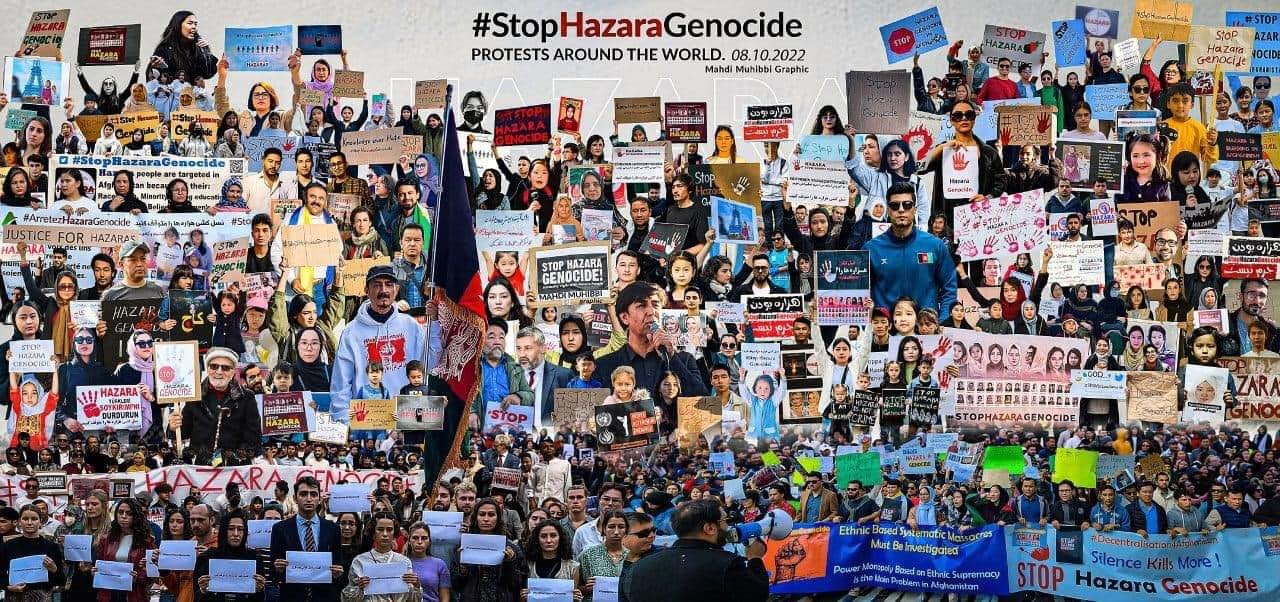Call for immediate removal of Taliban’s ban on girls and women’s education in Afghanistan
Date: 23 January 2023Email: abas.basir@gmail.comHis Excellency Mr Antonio Guterres, Secretary General
United Nations
New York, NY 10017
Your Excellency, First, I would like to thank you for your efforts for global peace and I am taking this opportunitytowishyou a happy New Year. I hope the year 2023 will provide us some respite fromviolence andrepressionwith fundamental human rights around the world and especially in Afghanistan. As we were concluding the violence-stricken year 2022, the Taliban banned women fromuniversityeducation on December 20, 2022 and suspended women from employment at national and internationalnon-government organizations on December 24, 2022. They had previously banned girls fromsecondaryeducation, public parks and sports clubs. The Taliban have issued over 30 directives since theytookoverAfghanistan in August 2021, targeting all aspects of women’s lives, virtually erasing womenformpublic and systematically reversing the gains Afghan women had achieved over the past twodecades. Afghan women can no longer get outside of their homes without the fear of getting arrested. If theydareto go outside alone or talk to someone not related by blood or marriage, they will be detained,prosecuted on charge of moral crimes, and will be subjected to public and private flogging. Dozensofwomen are being flogged on daily basis on ideological grounds. These repressive, inhumaneanddegrading measures are harming Afghan girls and women permanently on a scale unimaginable. Your Excellency, Under the Islamic Republic of Afghanistan 8.92 million students, 3.38 million of whomwerefemale,had enrolled at 15, 572 schools in 2012-2013 academic year. It was a remarkable achievement comparedto less than one million students Afghanistan had in pre-2001-era. In 2018 the enrolment number rose to around 10 million with the number of girls in primaryschoolincreasing from almost zero in 2001 to 2.5 million in 2018.
2
In 2020, Afghanistan had 172 higher education institutions with 39 public and 128 private. Theseuniversities provided enrolment opportunities for 422, 869 students, out of which 53%were inprivateand 47%, were in public higher education institutions. Many steps were also taken to enhance the quality and gender equity in education. These achievementswere not possible without generous support provided by the international community. The reemergence of Taliban as the governing force has put all achievements related to educationinserious risk. They have reversed much of the progress made in the past two decades, whichis thecauseof great concerns among the Afghan people, and in particular among the women and girls, lecturersandresearchers. The Taliban’s approach towards women’s education not only violates the human fundamental rights(Articles 26 & 27, Universal Declaration of Human Rights), but it is also clearly against theIslamicvalues and orders. Islam urges both men and women to seek knowledge. This is why Islamic countrieshave unanimously condemned the Afghan Taliban’s ban on higher education for women andgirls. Whatis happening in Afghanistan is a gender apartheid and may amount to a crime against humanity. Furthermore, as SDG 4 indicates, an inclusive and quality education for all women is animportantelement in promoting peace and prosperity for people and planet. Girls’ education is is alsointerlinkedto the realization of many other goals, from achieving No Poverty, Zero Hunger, Good Healthandwell-being, to Gender Equality, Descent Work and Economic Growth, Reduced Inequalities, andPeaceandJustice. With this in mind, the Taliban’s prohibition of education to half of the Afghan populationisadecision that has disastrous consequences for the future of Afghanistan and will drive more Afghanstoleave the country. Beside the ban on women’s education, the Taliban’s ongoing efforts to radicalize school anduniversitycurricula is another matter of high concern. The proposed changes will replace scientific subjectsandmodules with hard-line content in an effort to radicalize Afghanistan’s children andtheyounggeneration. I welcome Her Excellency Amina Jane Muhammad’s recent visit to Afghanistan on 18-19 January2023.While I am deeply thankful to her and the accompanying delegates for discussing women’s rightstowork and education with the Taliban leadership, given the Taliban’s lack of interest in internationalrelations, education, and progress, I believe that they would remain reluctant to make anymeaningfulchange towards girls’ education. Therefore, I call on the United Nations and its member countries to: – Stay in solidarity with the Afghan women and support them in protecting their rights andfreedoms.The UN and international community should increase their diplomatic pressure on the Talibanregimetoreverse the multiple bans. Women must be allowed to work and to move freely, and girls must beallowed to continue to go to school and university. The norms and principles which are fundamental forthe progress of the higher education should be maintained.
3
- Continue and increase its support and assistance for Afghan female students as well as Afghanlecturers and researchers by providing more scholarship programs for education and research, andsupporting home schooling and online platforms or academies for sustaining the female educationinAfghanistan. Online education offers unique and essential teaching and learning opportunitiesforwomen and girls who have been prevented from both teaching and attending the university classes. – Provide urgent protection measures and support to the protesting professors and lecturers whocontinueto defy Taliban’s order. Responding to the unjust and immoral ban on women education, severaluniversity professors and lecturers have resigned from public and private universities. Whiletheyarecontinuously growing in numbers in submitting their resignation letters, I amdeeply concernedabouttheir security. Their resignation was considered by the Taliban as an objection to Islam, whichmeansthey may face brutal punishment or detainment if they are not back to university. Thus, it is requestedthat they be provided with protection as well as financial support as they are losing their jobs. – Ban all supports to the Taliban (direct or indirect). Taliban must be held responsible for their actionsand faced with more pressure and sanctions under international human rights law. The internationalcommunity is misled by the Taliban’s false promises and is awaiting for more than one year andhalfforthe Taliban to respect human rights. They, however, continue to ignore almost all humanrightsstandards. It is time to step up efforts to ensure accountability for violations of international humanrights law and humanitarian law. Impunity will further violations and deteriorate the humanrightssituation in the country. – While online education for women and girls in Afghanistan is very valuable and must be establishedand maximized, its value, however, might be affected by the limitations on access to the internet anditsunreliability within Afghanistan. Therefore, it is further recommended that international opportunitiesbeurgently created, on a considerable scale, so that a large cohort of women and girls can studyabroad. – Until the Taliban take significant steps in respecting human rights including by reopeninggirls’schools and universities and until the time that it gets ready for an intra-Afghan dialogue onfuturepolitical system and building a broad based and representative government, they should not be onapathto recognition. As a former minister serving Afghanistan’s young generation under the internationally-recognizedIslamic Republic of Afghanistan, I remain increasingly concerned about the long-termrepercussionsofthe Taliban’s continued crackdown on women, girls, and minority groups. The Taliban’s recklessandrepressive violations may continue if the United Nations and the international community donot resortto stronger punitive measures. The academic community of Afghanistan is hopeful to get apositiveresponse. I avail my best wishes. Dr. Abas Basir
Former Minister of Higher Education of Afghanistan and the following scholars:
4
- Dr. Mohad Qasim
Wafayzada, Former
Minister, Ministry of
Infromation&Culture - Sayed Farhad Shahid Zada, Former Deputy Minister of
Higher Education - Dr. M. Osman Babury, Former Chancelor, Kabul
University - Dr. Abdulla Fayez, Former
Chancelor, Heart
University - Dr. Abdul Aziz Mohebi, Former Chancelor, Bamian
University - Dr. M. Jawad Salehi, Former
Chancellor, Gawharshad
University - Dr. Mohammad Aziz
Bakhtyari, Ex-Chancellor, Kateb University - Dr. Faizullah Jalal, Ex-Vice
Chancellor, Kabul
University - Dr. Salim Saay, Ex- Director
of Information &
Technology, Ministry of
Higher Education - Hamid Obaidi, Former
Spokesman, Ministry of
Higher Education - Dr. Zakir Hussain Ershad, Ex-Vice Chancellor, Avicenna University
- Mohammad Hadi Akbari, Advisor, Ministry of
Higher Education - Abdul Ali Nekhat
- Abdul Aziz Javid
- Abdul Rashid Ahmadi
- Abdul Wasie Rahraw
Amzad - Abdullah Halim
- Ahmad Omid Rashiq
- Ahmad Shekib Nikfar
- Ahmad Zia Feroz Poor
- Ali Ahmad Kaveh
- Ali Akbar Nasiri
- Ali Atayee
- Ali Hekmati
- Ali Khan Yazdani
- Ali Omid
- Ali Reza Mahdian
- Aliyawar Farid
- Amina Ahmadi
- Ara Hussaini
- Arif Bahram
- Arif Rezayee
- Assadullah Ehsani
- Assadullah Zairi
- Azizullah Aziz
- Barakzay
- Basir Ahmad Danishyar
- Bonyad Omid
- Dawood Rasa
- Dr. Masuma Waezi
- Dr. Abdul HamidNoori
- Dr. Abdulkhaliq Qasimi
- Dr. Abdullah Danish44. Dr. Alireza Rohani
- Dr. Anwar Mohaqeq46. Dr. Arif Sahar
- Dr. Assadullah Amiri
- Dr. Azizullah Kazimi
- Dr. Dawood Mirzayee50. Dr. Esmatullah Sharifi
- Dr. Fatima Ahmadi
- Dr. Gillian Wylie, TrinityCollege Dublin, Ireland53. Dr. Javid Fazli
- Dr. Hassan Ali Anwari
- Khalilullah Habibi
- Dr. Mahdi Safdari
- Dr. Mahdi Sedaqat
- Dr. MaryamSultanis
- Dr. Marzia Mohammadi
- Dr. Marzia Sultani
- Dr. Mehri Rezayee
- Dr. Mohammad Ahmadi
- Dr. Mohammad Ali Bayani
- Dr. Mohammad AzizNishat65. Dr. Mohammad Esmaeel
Ammar - Dr. Mohammad JawadAsghari
- Dr. Mohammad JawadBorhani
- Dr. Mohammad MusaAkbari
5 - Dr. Mohammad Noori
- Dr. Mohammad Reza
Rezayee - Dr. Mohammad Qasim
Elyasi - Dr. Mohammad Sadiq
Dehqan - Dr. Mohammad Saleh
Mosleh - Dr. Mohammad Shafaq
Khawati - Dr. Mohammad Younus
Toghyan Sakayee - Dr. Mohmmad Amin
Reshadat - Dr. Moheqqi
- Dr. Mursal Dawoodi
- Dr. Omar Sadr
- Dr. Razia Bromand
- Dr. Sayed Hussain Fasihi
- Dr. Shegufa Akbharzada
- Dr. Sina
- Dr. Somaya Ahmadi
- Dr. Wazir Ahmad Habibi
- Dr. Yahya Baiza
- Dr. Zainab Abulfazl
- Dr. Zamin Ali Habibi
- Dr.Shakardokht Jafari
- Ehsanullah
- Eid Mohammad
- Emal Sobat
- Esmatullah Mawj
- Farhad Sultani
- Farida
- Fatima Ibrahimi
- Ghulam Abbas Faiazi
- Ghulam Haidar Rezayee
- Ghulam Reza Paikar
- Ghulam Yahya Tahiri
- Habibullah Sorosh
- Hadi Kheradwarz
- Hamid Safwat
- Hamida Naderi
- Hanifa Alizada
- Hazrat Askarzad
- Husnia Saadat Mahdawi
- Hussain Bakhsh Nazari
- Hussain Dad Saadat
- Hussain Haidari
- Jamalludin Jamal
- Javid Baktash
- Javid Safwat
- Javid Sokut
- Kazimia Mohaqeq
- Khadija Hassani
- Khalil Ahmad Matin
- Khodad Mohseni
- Kubra Zafari
- Latifa Miran
- Leonie O’Dowd, Dublin
Rape Crisis Centre, Ireland - Mahram Ali Khalili
- Masuma Haidari
- Masuma Ibrahimi
- Masuma Mohammadi
- Mir Ahmad Parsa
- Mohammad Alem Zafar
- Mohammad Ashraf
Bakhtiari - Mohammad Eisa Darwish130. Mohammad FayeqLatoon131. Mohammad Fedakar
- Mohammad Gulzari
- Mohammad Hanif Tahiri
- Mohammad JawadMohammadi
- Mohammad JawadSultani
- Mohammad JawadTawakoli
- Mohammad MohsinRezayee
- Mohammad Nabi Khedri
- Mohammad SalimTabesh140. Mohammad Sharif
Mohammadi - MohammadullahRafie142. Mohebullah Zafar Nezhad143. Mohmmad Sharif Tayeebi
- Mujaheda Khajazada145. Mukhtar Haidari
- Mustafa Shafiq
- Nader Shah Soha
- Nafisa Saeedi
- Nargis Akhlaqi
- Nemat Hassani
- Poya Ghaznawi
- QasimErfani
- Qodratullah Rahmat
- Rahima Tofan
- Reza Shah Watandost
- Ruknuddin Sarwari
6 - Sakhi Bayramli
- Salahuddin Samandari
- Sayed Ashraf Gardezi
- Sayed Murtaza Alizada
- Sayed Nasim Rahman
- Sayed Rasol Saadat
- Sayed Zmary
- Sayed Zubair Hashimi
- Sediqa Mushtaq
- Shafiqullah Shafiq
- Shokria Barakzay
- Sohaila Erfani
- Somaya Ghulami
- Suhaila Ahmadi
- Suhrab Bakhtari
- Swita Akbari
- Yazdan Hatami
- Zarif Hassan


